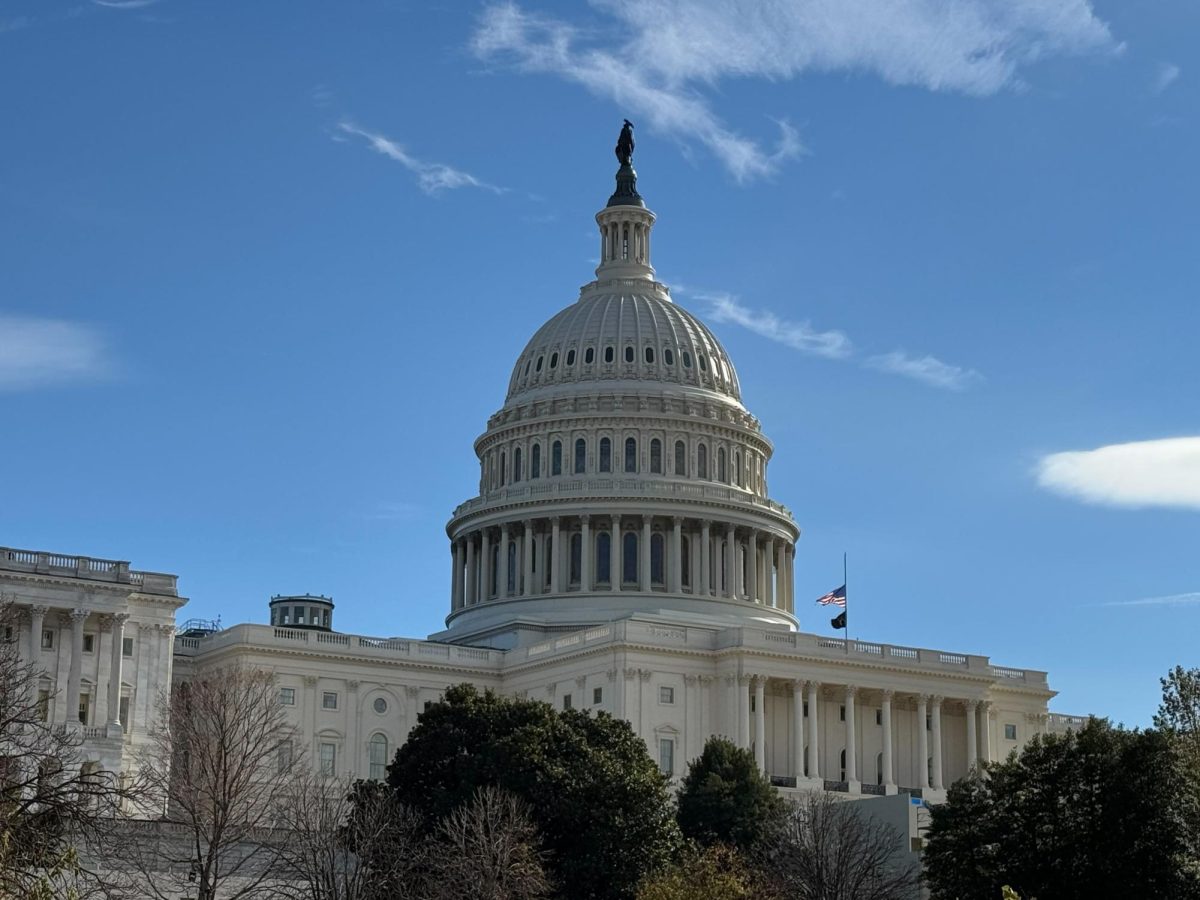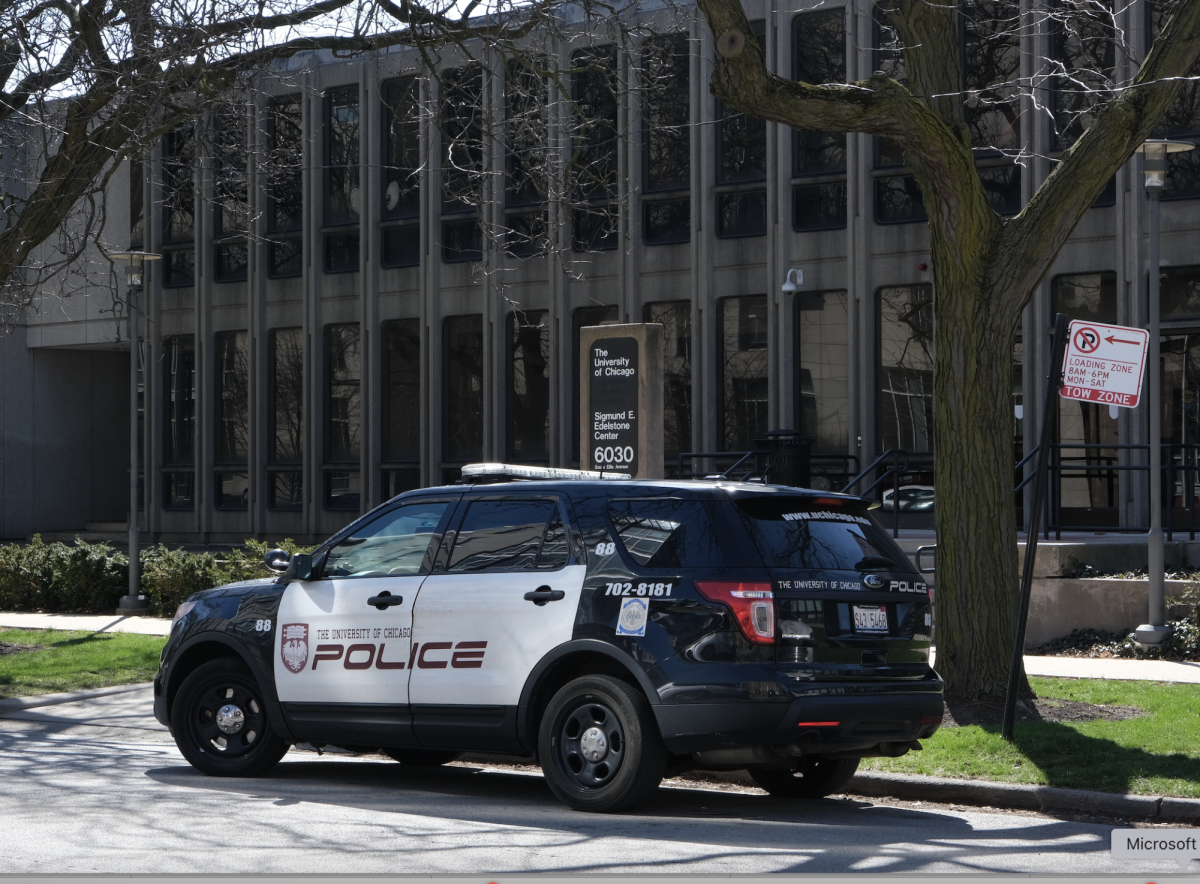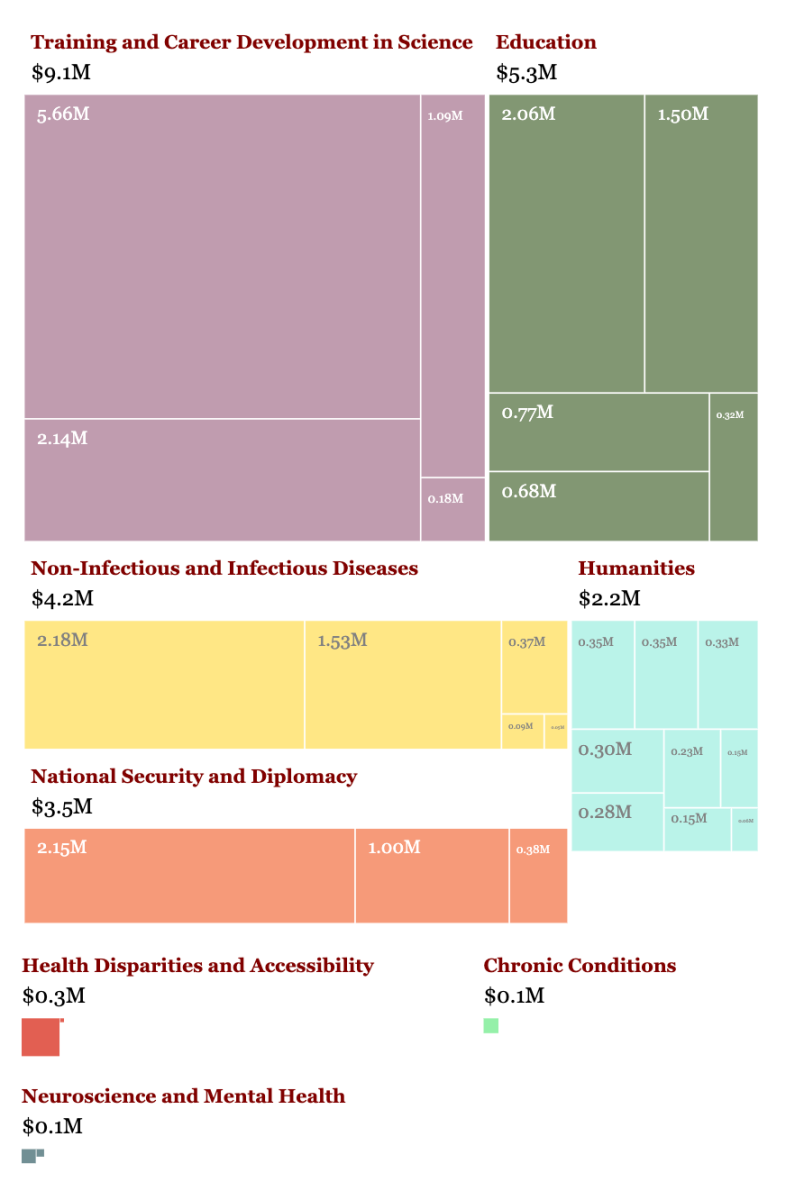The University of Chicago spent over $200,000 on federal lobbying in 2024. Some community members believe this practice violates the University’s commitment to institutional neutrality, while others see it as necessary and consistent with this commitment.
In 2024, the federal government invested billions of dollars into higher education, allocating money to financial aid, student loans, and research. Higher education institutions lobby the federal government to compete for research funds and to influence legislation that affects their educational and corporate interests, such as immigration policies that affect foreign student visas.
“When you receive money from the government, there are strings attached. A lot of [lobbying] just has to do with pulling and hauling over what those strings are,” said John Mark Hansen, the Charles L. Hutchinson Distinguished Service Professor in the Department of Political Science. Hansen has previously served in administrative leadership roles at UChicago, including as associate provost for research and education, dean of the Division of the Social Sciences, and senior advisor to former University President Robert Zimmer.
Each year, the University receives hundreds of millions of dollars from federal programs and agencies, including the National Institutes of Health (NIH), National Science Foundation (NSF), Department of Energy (DOE), National Aeronautics and Space Administration, Office of Naval Research, Department of Justice, and Department of Education. The exact federal funding totals are not publicly available.
UChicago’s 2024 Lobbying Profile
The University spent $225,272 on lobbying in 2024, down from $300,281 the previous year. UChicago’s spending was lower than that of many peer institutions, including Brown, Columbia, Northwestern, and Stanford.
In 2024, the University lobbied on bills including the DETERRENT Act (H.R.5933), which requires institutions of higher education to disclose foreign gifts and contracts, and the DHS Restrictions on Confucius Institutes and Chinese Entities of Concern Act (H.R.1516), which restricts federal funding to institutions of higher education that maintain relationships with Confucius Institutes, cultural institutions funded by the Chinese government. The University’s Office of Federal Relations also lobbied the Senate and House of Representatives for NSF funding and DOE Office of Science funding.
The NSF is among the latest targets of the Trump administration’s funding and staff cuts. Earlier this month, the Foundation paused its annual grant review process after an investigation led by Senator Ted Cruz (R-Texas) identified over 3,400 NSF grants as “[advancing] neo-Marxist class warfare propaganda,” including 18 awarded to the University with a combined award amount of over $15 million.
Past Lobbying Efforts
Since 1998, the University has generally spent below $300,000 on lobbying annually. However, expenditures spiked in 2006, the year that the University became a co-manager of the Fermi National Accelerator Laboratory, which is owned by the U.S. Department of Energy. Reports from that year list Argonne National Laboratory management, another federal lab managed by the University, as a specific lobbying issue and the Department of Energy as one of the agencies contacted.
In recent years, the University has repeatedly lobbied the federal government on immigration and tax reform. In 2017, the University lobbied in support of the Deferred Action for Childhood Arrivals (DACA) program. Additionally, they filed an amicus brief—a legal document filed by a non-party offering arguments to assist the court’s decision—that challenged the federal government’s plan to end the program. That same year, the University lobbied against a tax reform proposal to treat graduate student tuition as taxable income, which was later dropped from the final Tax Cuts and Jobs Act.
According to Hansen, evergreen University lobbying priorities include student visas, research funding, and federal financial aid and loan policies, but the amount spent on these advocacy issues fluctuates according to the federal government’s political priorities.
“Since the Reagan administration, there’s been this pattern of Republican administrations wanting to cut back on federal programs in a whole bunch of areas,” Hansen said. In 1981, the Reagan administration proposed budget cuts to research funding that drew harsh criticism from the scientific community and sparked an increase in University lobbying.
Lobbyists Representing the University
UChicago lobbies the federal government through the support of its Office of Federal Relations, as a member of mutual interest organizations, and by hiring consulting firms to represent its legislative priorities.
UChicago opened its Office of Federal Relations, located in Washington, D.C., in 2008. The establishment of a D.C. office reflected a nationwide increase in university lobbying efforts to block the proposed College Opportunity and Affordability Act, an amendment to the reauthorization of the Higher Education Opportunity Act that would have allowed the federal government to collect data on students’ post-graduation job market experiences and prospective students to compare colleges in terms of their returns.
The Office of Federal Relations “supports the work of the University by identifying opportunities to discuss issues of interest to the University with the White House, executive branch agencies, members of Congress, and other national opinion leaders and stakeholders,” a University spokesperson wrote in a statement to the Maroon. “The Office of Federal Relations also identifies sources of federal funding and helps raise the profile of successful faculty research and initiatives on a national level. The University’s federal relations team stays in touch with elected officials and their staff and shares University input on policy issues of importance to the University’s mission.”
The University’s advocacy issues include “science and innovation-related funding and legislation, University of Chicago Medical Center issues, urban-related research and community engagement, national laboratories funding and policy, and international education (Title VI) policy,” per the Office’s website.
UChicago also lobbies as a member of mutual interest organizations like the Association of American Universities (AAU) and the American Council on Education (ACE). These organizations advocate on behalf of universities based on mutual interests in shaping public policies. Institutions pay membership dues, which the AAU and ACE use to fund their lobbying efforts.
The University, the AAU, and ACE were all parties in a lawsuit against the NIH over indirect funding cuts this month.
The AAU includes 71 public and private research universities. One of the organization’s key advocacy issues last year was pushing Congress to prioritize investment in scientific and medical research through the NSF and the NIH. Additionally, the AAU called for action to “secur[e] university research against foreign threats” and to protect university technology transfer by preserving the Bayh-Dole Act, which allows universities to keep intellectual property rights for inventions made with federal funding.
The AAU declined to comment.
ACE’s university members number over 1,600. According to ACE’s 2025 legislative and regulatory agenda, this year, the organization will push for legislation that increases funding for student accessibility, protects “institutional autonomy on a national level,” promotes institutional transparency, and enhances innovation through academic research.
ACE did not respond to a request for comment.
Since 2011, the University has outsourced some of its lobbying efforts to Cornerstone Government Affairs, a bipartisan consulting firm. Cornerstone represents an array of higher education institutions, from elite research universities to community colleges.
“Our group of professionals maintain strong ties with the federal authorizers and appropriators who oversee education policy and funding, and therefore are very well positioned to assist clients with their legislative and regulatory agendas,” Cornerstone’s website reads.
In 2024, UChicago hired four Cornerstone lobbyists, all of whom are former federal employees.
Neither Cornerstone nor any individual lobbyists responded to requests for comment.
University Lobbying and Political Neutrality
Community members have criticized the University’s lobbying based on principles set forth in the Kalven Report, which argues for institutional neutrality in political matters.
In his 2011 Maroon op-ed “Lobbying for Consistency,” Michael McCown (A.B. ’14) argued that “not only does hiring lobbyists contradict the spirit of the Report, it contradicts the very letter. The University, according to the Kalven Report, ‘if it is to be true to its faith in intellectual inquiry, must embrace, be hospitable to, and encourage the widest diversity of views within its own community…. It is not a club, it is not a trade association, it is not a lobby.’”
However, according to Hansen, University lobbying does not conflict with UChicago’s policy of institutional neutrality set forth in the Kalven Report. “The Kalven Report is quite clear that the University can and must take positions on matters as an institution [and] on matters that are inextricably related to its mission,” he said.
In 2017, the University lobbied in support of the DACA program. However, it did not support the 2010 Development, Relief, and Education for Alien Minors (DREAM) act, citing tenets from the Kalven Report.
For a 2017 Maroon article, a University spokesperson explained that “the DREAM Act encompasses issues that do not directly affect the University. However, in general the University strongly supports efforts to address this issue through legislation that protects the ability of DACA-eligible students to live in the United States and pursue their education and careers here.”
“[The University] is defending the interest in the prerogatives of the University in education and research and in the kind of treatment of University faculty and employees and students,” Hansen said.









